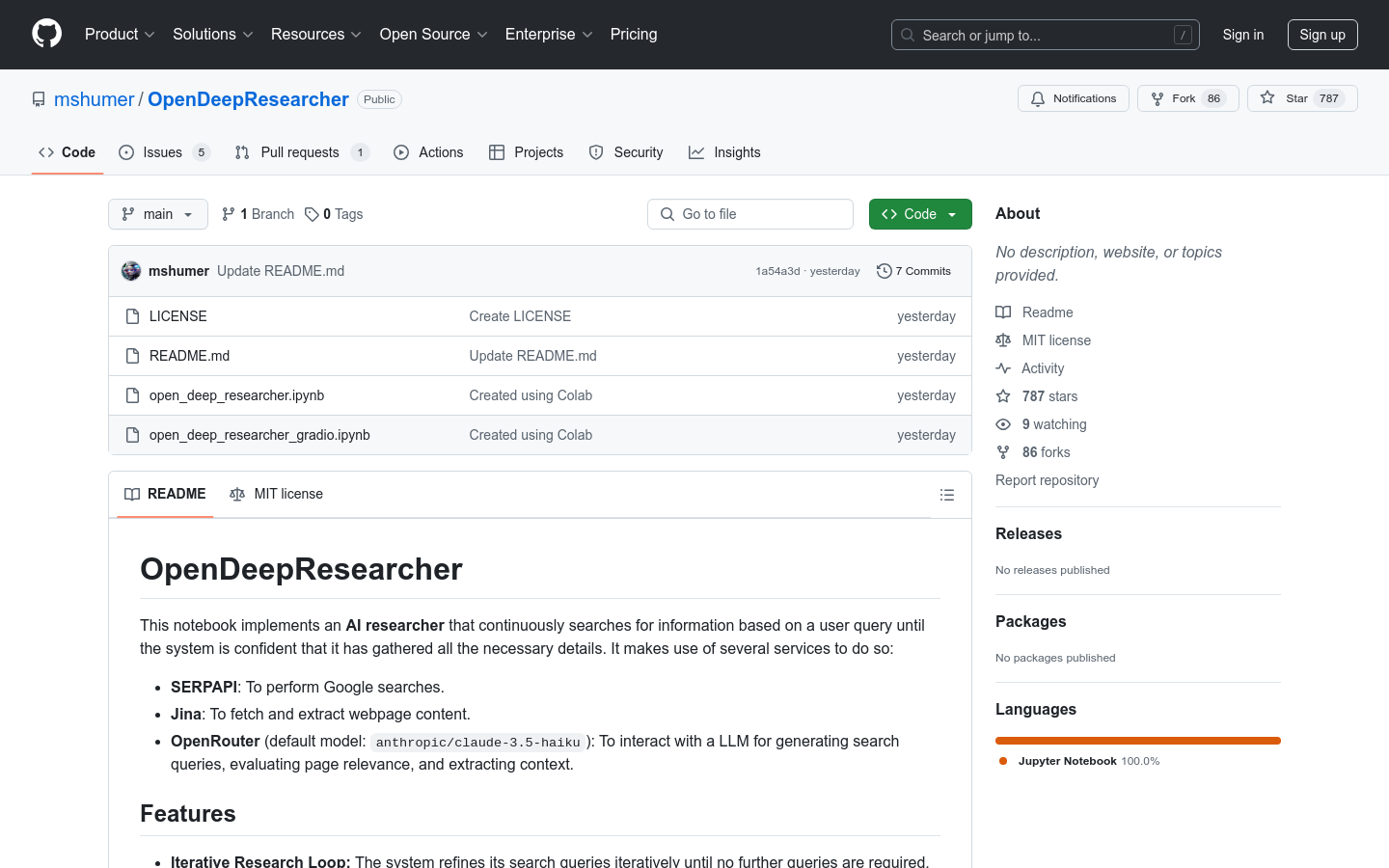

Opendeepresearcher
Overview :
OpenDeepResearcher is an AI-driven research tool that utilizes services such as SERPAPI, Jina, and OpenRouter to perform auto-iterative searches based on user-defined query topics, collecting sufficient information and generating a final report. Its core advantages include efficient asynchronous processing, deduplication functionality, and robust LLM decision support, significantly enhancing research efficiency. It is primarily aimed at researchers, students, and professionals in related fields who need to conduct extensive literature searches and organize information, assisting them in quickly obtaining high-quality research materials. The tool is currently available in an open-source format, allowing users to deploy and use it as needed.
Target Users :
This product is suitable for researchers, students, and professionals in related fields who need to conduct in-depth literature searches and organize information. It helps them quickly obtain high-quality research materials and improve research efficiency.
Use Cases
Researchers use this tool to quickly compile the latest research findings in a specific field.
Students leverage this tool to gather reference materials for their theses.
Corporate analysts utilize this tool to collect industry trends and competitor information.
Features
Iterative Research Cycle: The system automatically generates new search queries based on the current collected information until no further queries are needed.
Asynchronous Processing: Searching, web scraping, assessment, and context extraction are executed in parallel to enhance efficiency.
Deduplication Function: Automatically filters out duplicate links to prevent repetitive processing.
LLM-driven Decision Making: Utilizes LLMs to generate queries, evaluate page relevance, extract context, and create final reports.
Gradio Interface Support: Allows for easier usage of the tool through a Gradio interface.
Flexible Configuration: Users can customize parameters such as maximum iterations to suit different research needs.
Multi-source Data Integration: Merges information from multiple sources to produce comprehensive research reports.
How to Use
1. Clone the notebook or open it directly in Google Colab.
2. Install the necessary dependencies, such as nest_asyncio.
3. Replace the placeholder API key in the notebook with your actual API key.
4. Run the notebook cells, entering your research topic and desired maximum iterations.
5. Observe the tool as it automatically searches, extracts information, and generates reports.
6. Review the final comprehensive research report.
Featured AI Tools

Myreader AI
MyReader is an AI-powered tool that reads books for you. You can upload any book or document (PDF, EPUB), ask questions, and get answers along with the relevant passage for your reference. You can also browse the contents of the uploaded books, view related chapters, and jump to specific pages within the book to continue reading. MyReader helps you efficiently acquire knowledge and allows you to create different contexts, such as philosophy, finance, and healthcare. You can refer to your uploaded books anytime, with a maximum upload limit of 20,000 pages. Please visit our website for pricing details.
Knowledge Management
606.4K

Elicit
Elicit is an AI assistant that analyzes research papers at super speed. It automates tedious research tasks like paper summarization, data extraction, and synthesizing research findings. Users can search for relevant papers, get one-sentence summaries, extract and organize detailed information from papers, and find themes and concepts. Elicit is highly accurate, user-friendly, and has earned the trust and praise of researchers worldwide.
Research Instruments
603.6K















